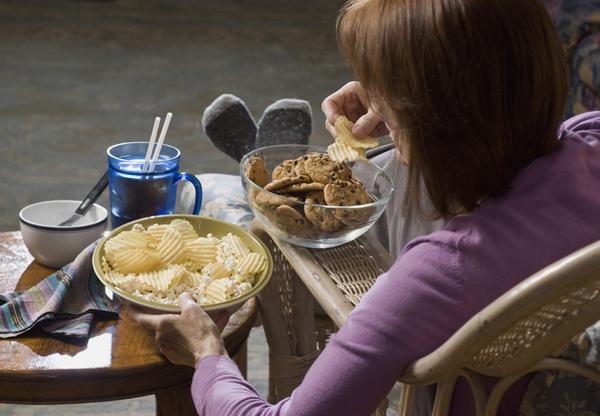Sweets and Fast Food Linked to Depression

Diet and mental state seem to be tightly entwined, with new research showing an increased risk of depression in junk-food eaters.
Consumers of fast food and sweets, compared with those who eat little or none, were 51 percent more likely to develop depression, the new study showed. The researchers saw that as depression levels increased, so did the amount of junk food eaten.
Study researcher Almudena Sánchez-Villegas, of the University of Las Palmas de Gran Canaria in Spain, said in a statement that "although more studies are necessary, the intake of this type of food should be controlled because of its implications on both health (obesity, cardiovascular diseases) and mental well-being."
Depressed diets
The researchers studied a group of almost 9,000 people for between two and six years as a part of a long-term, ongoing study. (People with extremely high or low daily caloric intake, or had obesity-related diseases, were excluded.)
At the beginning of the study, none had been diagnosed with depression, or ever taken antidepressants. By the end of the study almost 500 had been diagnosed with depression or put on antidepressants.
Participants were also asked to report how frequently they eat a given list of foods, with things like hamburgers, sausages and pizza considered fast food, and muffins, doughnuts and croissants examples of baked goods.
Get the world’s most fascinating discoveries delivered straight to your inbox.
"The more fast food you consume, the greater the risk of depression," Sánchez-Villegas said. The correlation could also go the other way: The more depressed you are the more likely you are to consume large amounts of junk food.
Sánchez-Villegas and colleagues found similar results in a past study, showing that people who ate the most trans fats had a 48 percent higher risk of depression than those who didn't eat trans fats. Another study, by a different group of researchers, found a 42 percent increase in risk of depression with a fast-food diet. That study was published in Jan 26, 2011 in the journal PLoS ONE.
Dangerous doughnuts
The researchers can't say the depression causes the high levels of junk food eating or if the fatty diet and other factors lead to depression. All they can say is the two usually come hand in hand.
People who eat high levels of junk food are also more likely to be single, less active and have other poor dietary habits, like eating fewer fruits and vegetables, and fewer healthy fats, like nuts, fish and olive oil.
Other characteristics of a depressed and junk-food ridden lifestyle: Being a smoker and working more than 45 hours per week, the researchers noted in their study published in the March 2012 issue of the journal Public Health Nutrition, and available online in August 2011.
You can follow LiveScience staff writer Jennifer Welsh on Twitter @microbelover. Follow LiveScience for the latest in science news and discoveries on Twitter @livescience and on Facebook.
Jennifer Welsh is a Connecticut-based science writer and editor and a regular contributor to Live Science. She also has several years of bench work in cancer research and anti-viral drug discovery under her belt. She has previously written for Science News, VerywellHealth, The Scientist, Discover Magazine, WIRED Science, and Business Insider.



